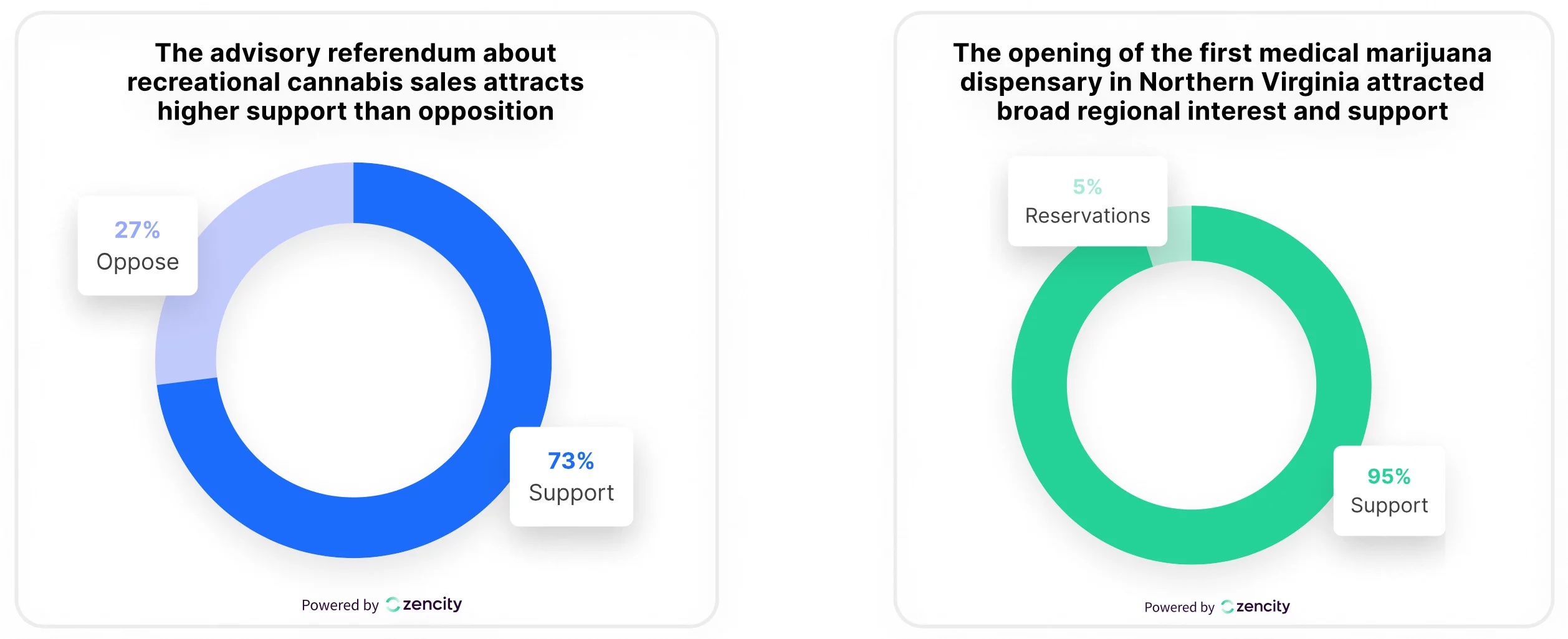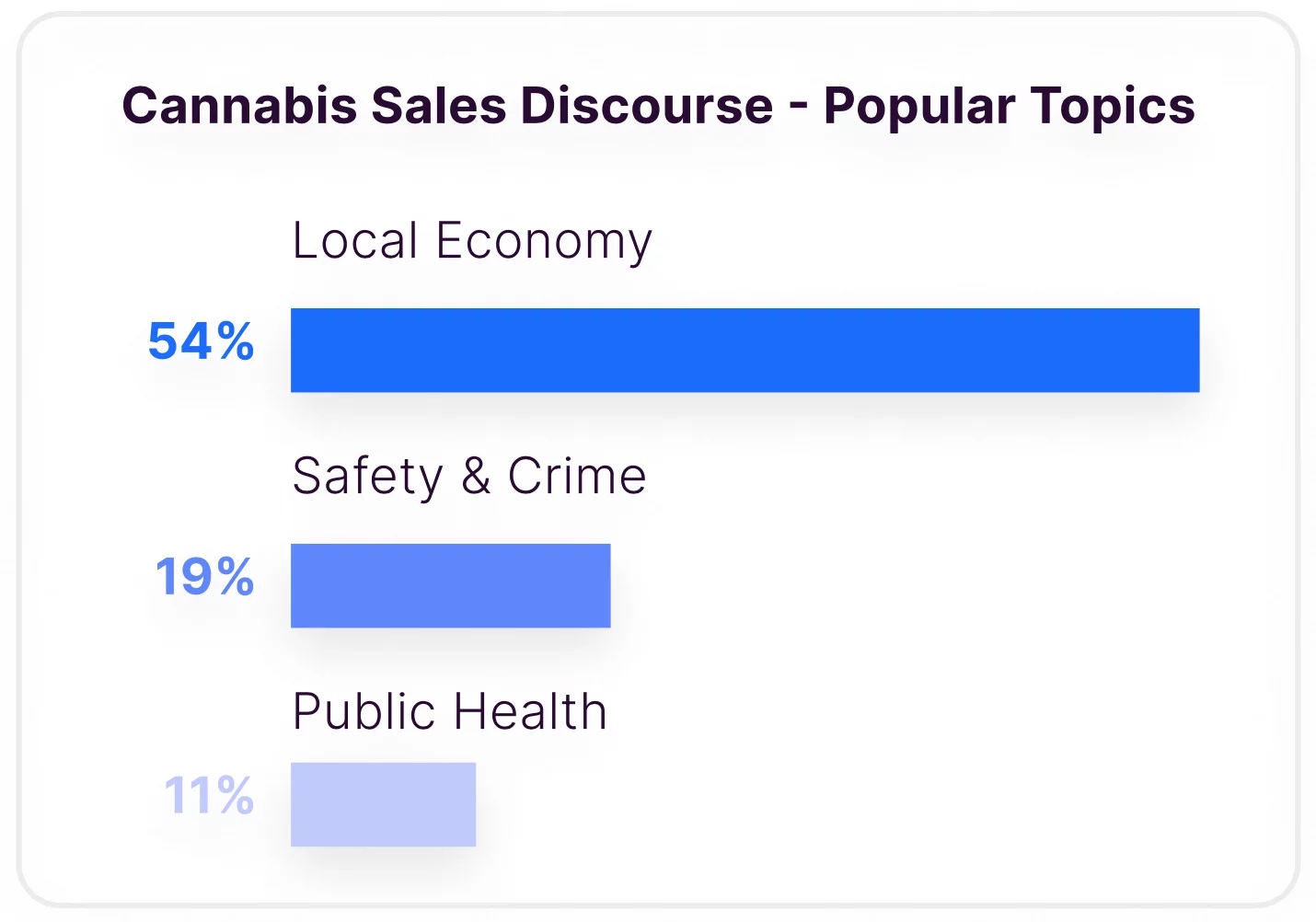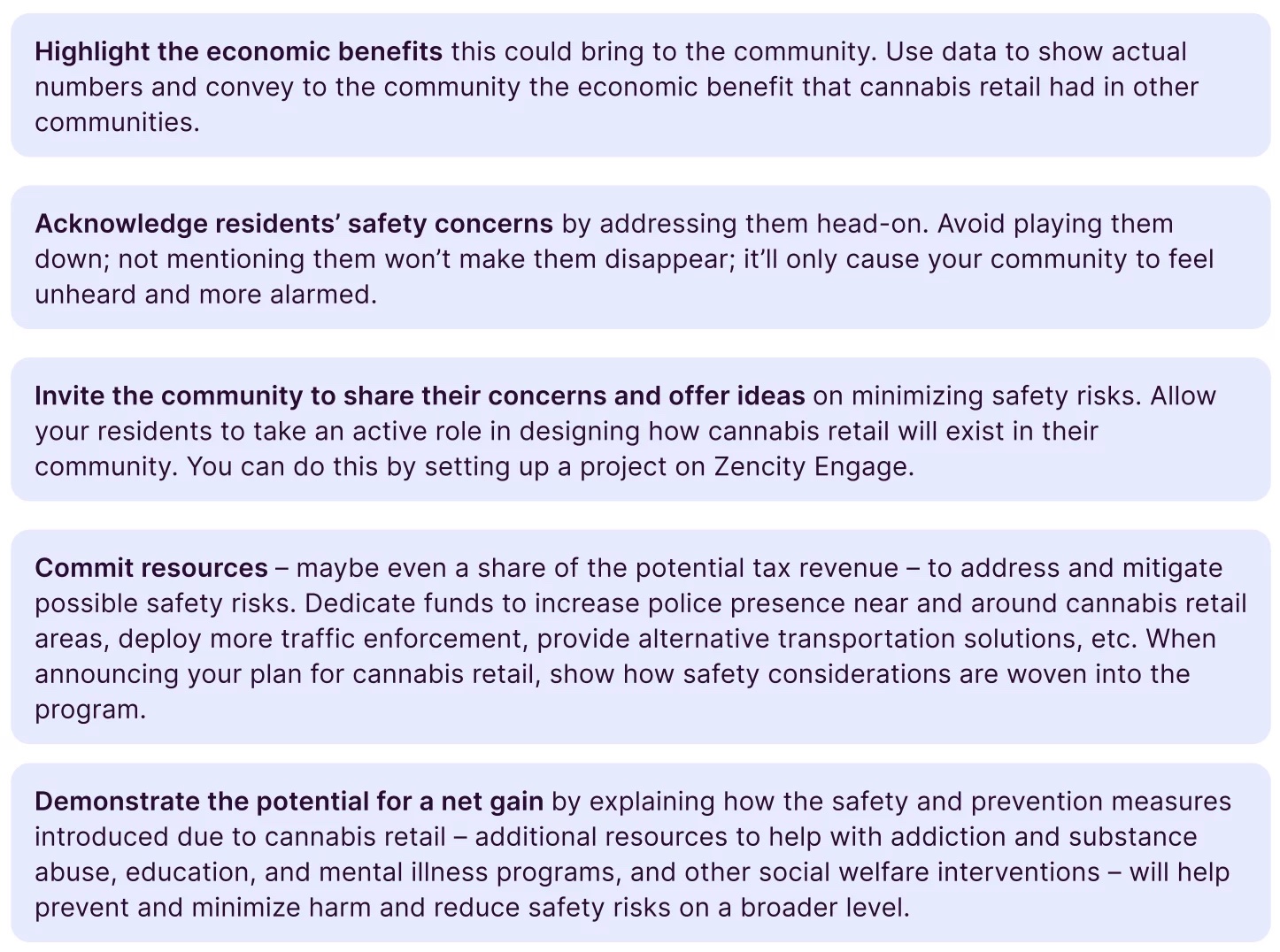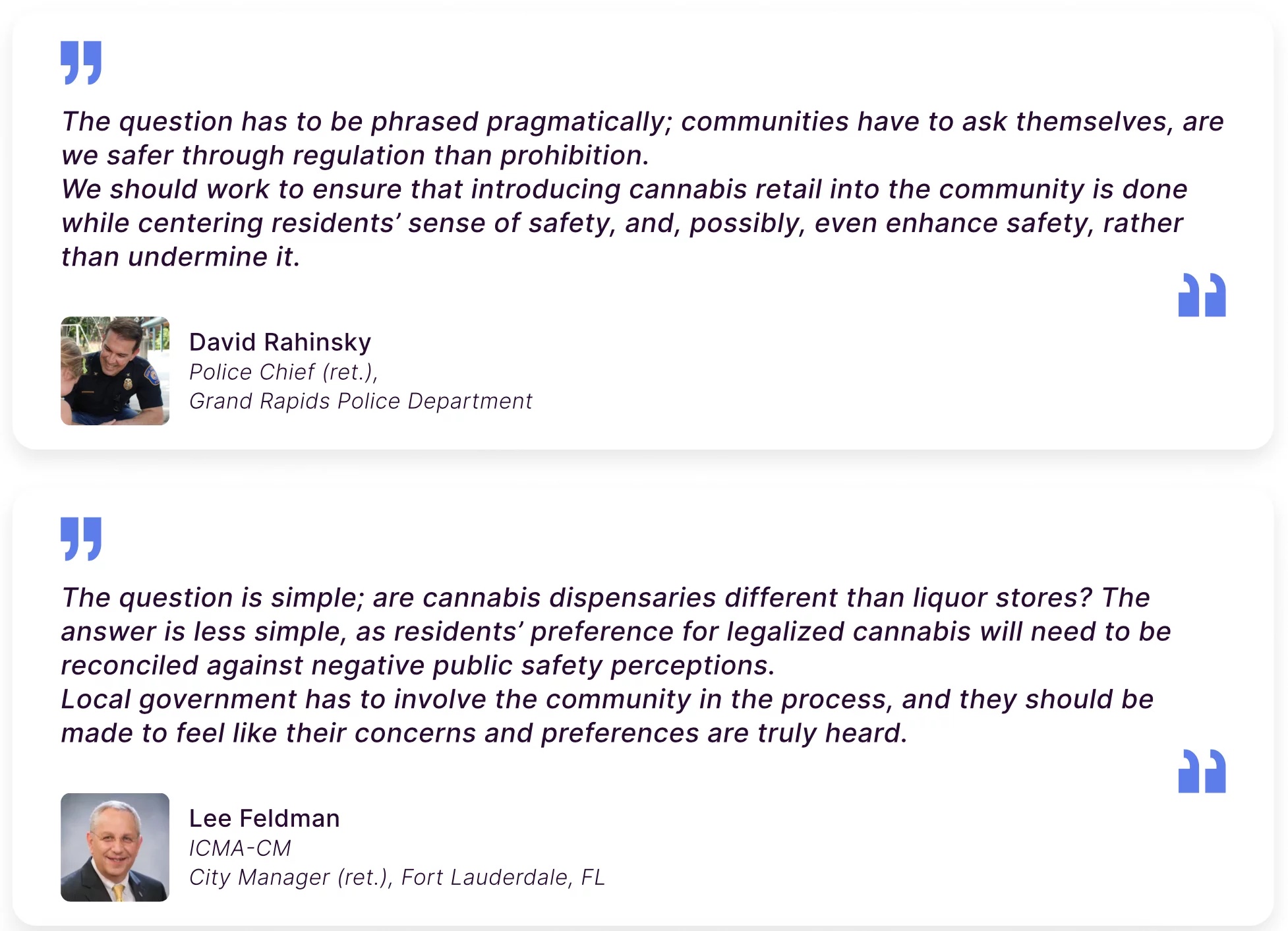
Twenty-one states have now legalized the purchase and possession of cannabis for recreational use. While these measures are often discussed and voted on at the state level, the tangible implications of these policies are inevitably felt on the local level as cannabis retail becomes a reality in downtowns and commercial areas in cities and counties across the country. Once a state has legalized the recreational use and sale of cannabis, cities and counties are tasked with approving and licensing cannabis businesses and managing resident concerns about these establishments popping up in their community.
The momentum of marijuana legalization and cannabis retail is nowhere near stalling; in fact, more and more Zencity partner communities have been addressing this issue head-on and have begun engaging and surveying their residents about the possibility of cannabis stores and how to implement new policies.
To better understand how this issue is being discussed in local governments across the country and as a resource for other communities facing or about to face this issue, Zencity conducted a cross-client analysis of the online conversation about cannabis retail, spanning over 200 U.S. partner communities (cities and counties). Below are some key takeaways from the data.
Support vs. Opposition
Residents are supportive of cannabis retail in their community
Organic online conversation and surveys on this issue show that residents voice support for cannabis businesses in their community across the vast majority of Zencity partner communities that have tackled this challenge. In the past year, Zencity produced dozens of insight reports for our partner communities that illustrate the widespread support for cannabis sales in communities where this issue was discussed, as the examples below illustrate:

Interest in the economic benefit outweighs safety concerns
During 2022 (January 1-December 25), more than half (54%) of all online conversations on cannabis sales focused on the economic aspect–specifically, the financial benefit for the community–rather than on safety concerns. Those were far less prominent in the conversation, making up only a fifth (19%). Safety concerns centered on consequent violence and crime were three times more prevalent than concerns about road safety due to driving under the influence.
Conversations about the health implications of recreational cannabis were also prominent in the conversation (11%), as residents debated the health benefits of marijuana, especially relative to alcohol.

Economic Benefits vs. Public Safety
Proponents celebrate economic benefits, while opponents cite public safety concerns.
The public debate positions economic benefits against public safety. Supporters of cannabis retail are likely to cite the economic benefit this could have for the community, and the potential economic boost tax revenue would generate for the city or county–and how it would benefit the community.
Opponents ground their opposition in the safety implications of cannabis being sold in the city–a potential increase in crime, substance abuse, and homelessness. Concerns about reckless driving or driving under the influence are also prominent.
Notably, the comparison to alcohol was leveraged by both sides; commenters who were worried about safety compared consuming cannabis to drinking alcohol and worried about impaired driving becoming more prevalent in the community. By contrast, supporters of cannabis retail used the alcohol comparison to make a case that cannabis was considerably safer. Both camps agreed there is a need to ensure responsible driving–increased police enforcement and checkpoints, viable transportation alternatives, or other initiatives meant to minimize impaired driving.
Overall, the discussion points to a need to weigh the economic benefit (which, the discourse shows, is widely acknowledged and welcomed) with the possible safety risks associated with cannabis usage. This balance can be achieved by consulting residents’ preferences, as they have emerged in surveys run by Zencity in several of its partner communities.
Residents’ preferences pave a path to balancing cannabis retail and public safety
In surveys conducted by Zencity on this issue, residents voice specific preferences that demonstrate a clear vision as to how cannabis can be sold in their community without undermining public safety (as they have done in the past with liquor stores, strip clubs, and other business establishments whose existence in the community may raise safety concerns). Residents’ main priority was to keep cannabis away from children by identifying locations that are at least a mile away from schools and outside residential areas.
Preferences around locations indicate that residents think cannabis shops should be in commercial areas, with most residents opting for locations along major roadways. Residents also noted the need for convenient public transportation access to minimize impaired driving.
When asked about how they want the tax revenue from cannabis sales to be spent, residents showed strong agreement for using funds to support mental health services, education and youth programs, and addiction treatment services, as well as other measures that could minimize safety risks and substance abuse in the community.
Recommendations
How to approach cannabis retail in your community
Across dozens of communities across the country, there is broad support for cannabis retail and agreement that the economic benefit outweighs the potential safety risks. In other words, residents are more excited about the potential revenues than they are worried about safety.
With this in mind, here are helpful tips to keep in mind when engaging your community on this issue:

Our Experts Weigh In
A retired city manager and a retired police chief share their perspectives:

New, Reduced Membership Dues
A new, reduced dues rate is available for CAOs/ACAOs, along with additional discounts for those in smaller communities, has been implemented. Learn more and be sure to join or renew today!
